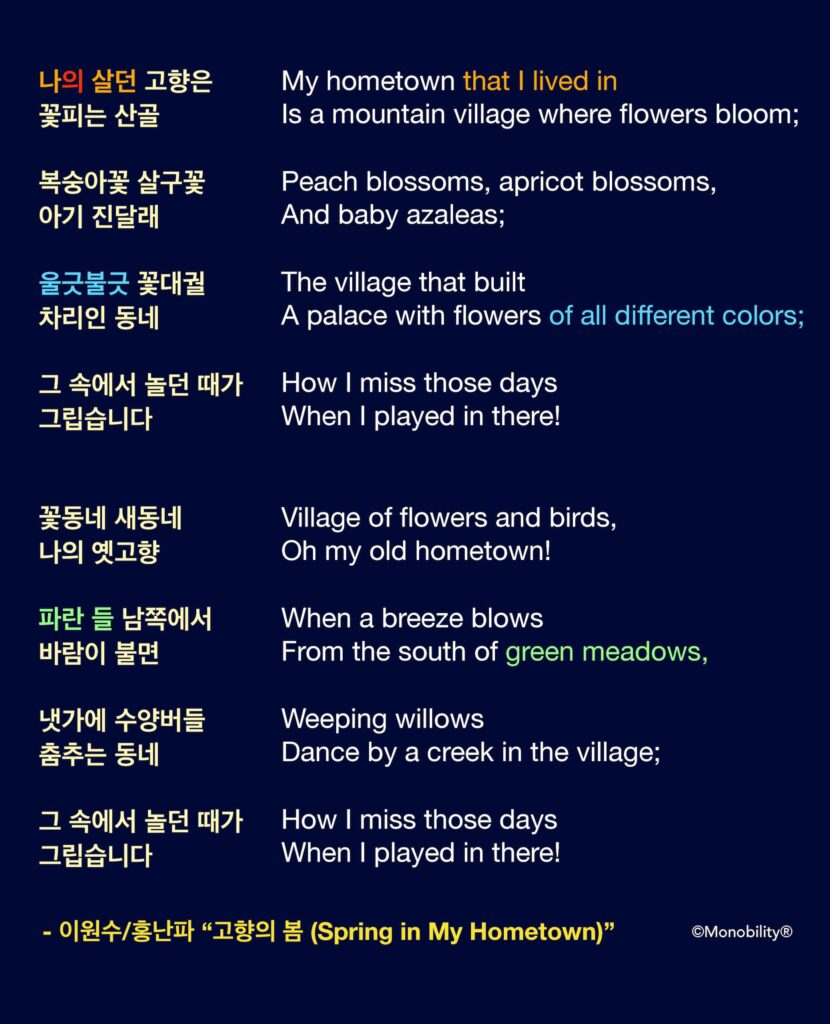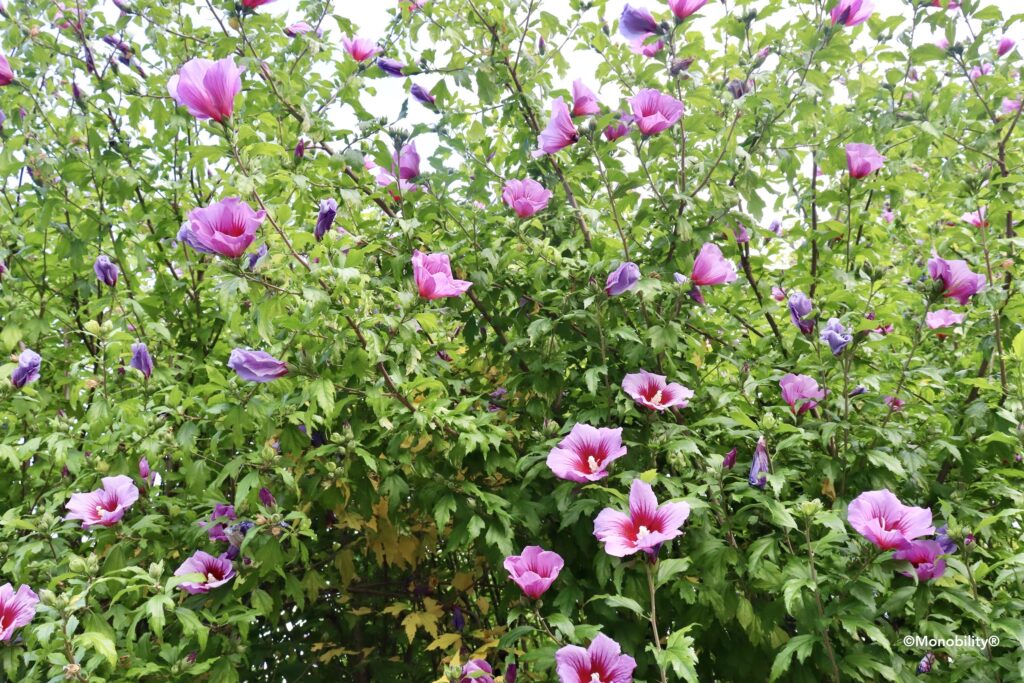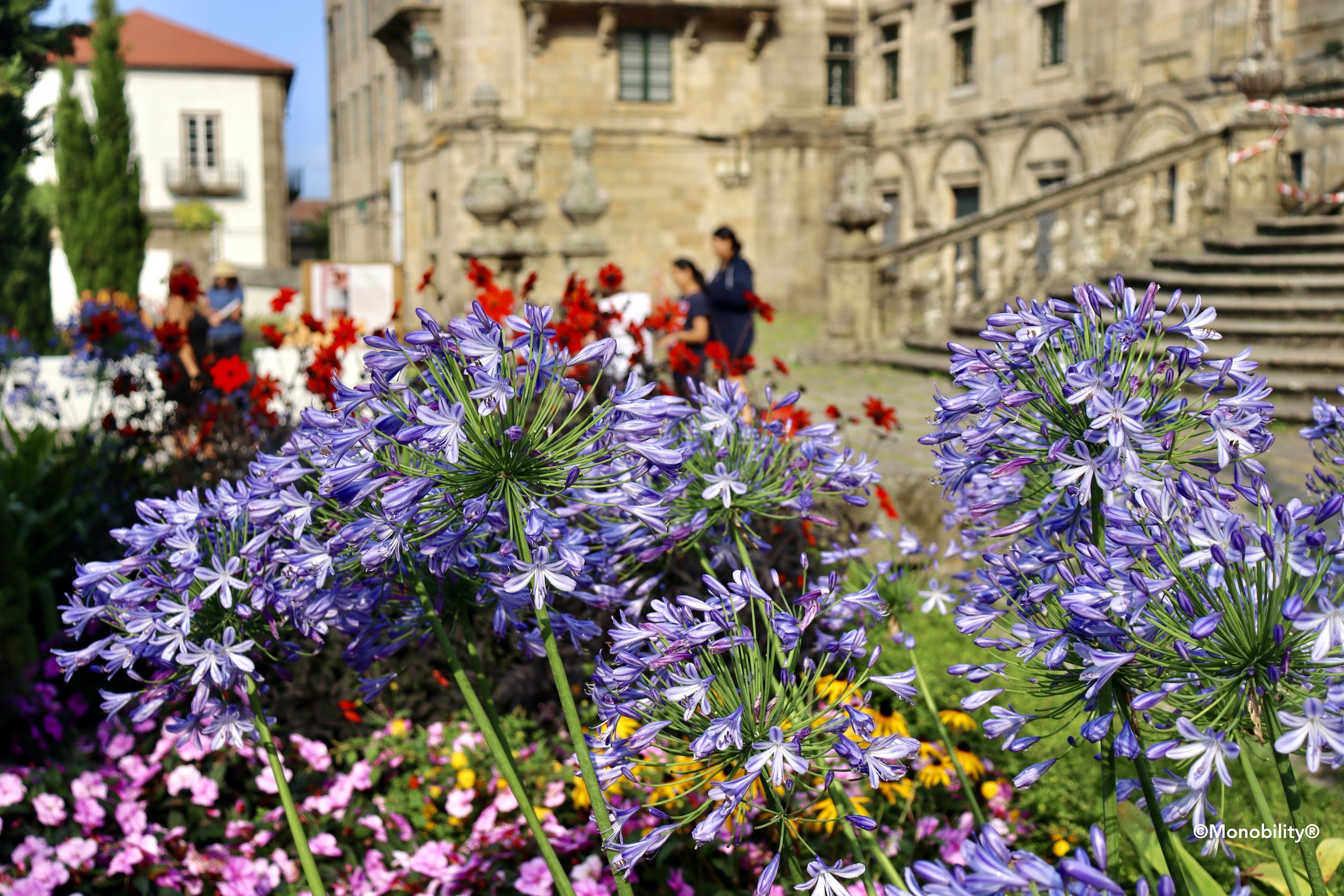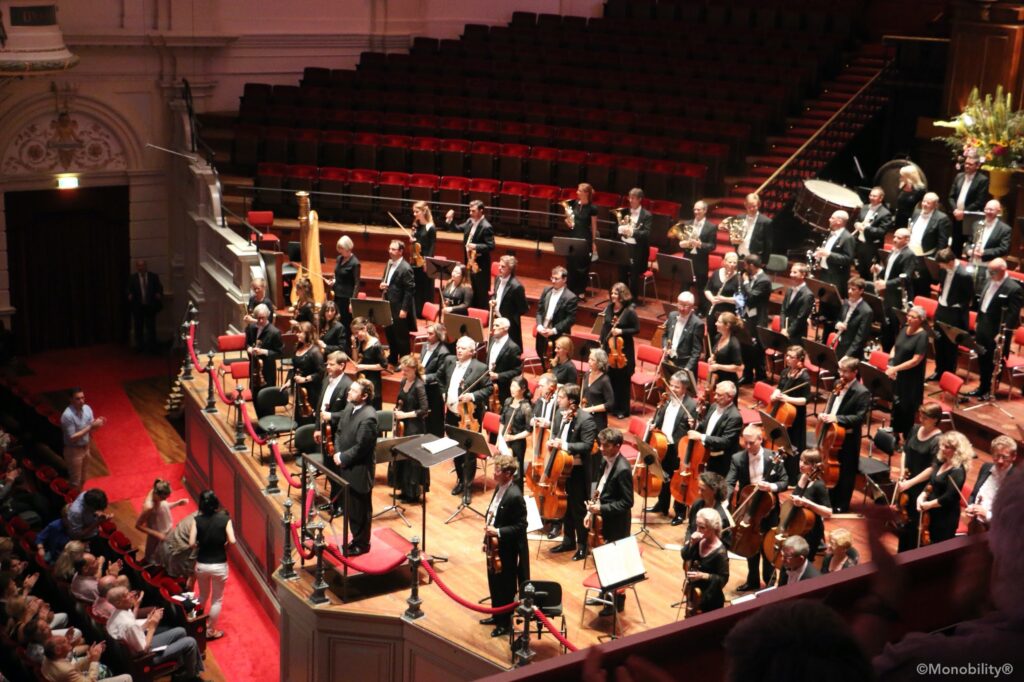A young Korean soldier chooses to become a deserter to protect his grandma suffering from dementia. Before getting arrested, he respectfully bows to her, who doesn’t even recognize him, and says to her “I’ll come back in Spring, let’s go see flowers together.” Right at that heartbreaking moment, “고향의 봄 (Spring in My Hometown)” – a children’s song that every Korean knows from childhood – flows quietly like a whispering rivulet in the background. This is how a recent K-Drama “D.P. (Deserter Pursuit, 2021)” suddenly evoked my memories of this haunting melody that I’ve almost forgotten, perhaps for too long.
The famous song also appears in the final scene of a heartwarming historical movie “오빠 생각 (A Melody to Remember, 2016)” where a children’s choir during the Korean War sings a pretty impressive version of it.
In fact, this children’s song and a famous Korean folk song 아리랑 (Arirang) are two main Korean pieces in the repertoires of many foreign choirs and orchestras performing in Korea. People know that these two songs are the surefire way to reach the inner child of Koreans and touch their hearts regardless of generation and social status, especially when they live far away from their “hometown.” So, enjoy this amazing interpretation by I Musici, performing at Seoul in 2012:
My favorite version so far is by members of the Rundfunkchor Berlin, recorded at Berliner Philharmonie in 2008. This version is very faithful to the original score from 1920’s, and its excellent musical quality beats any other video out there. The singers’ diction is so unbelievably clear that I don’t find much difference from native Korean pronunciation:
Let’s ask ourselves: How much time did these singers spend to learn Korean pronunciation, and most likely, basic syntax in the lyrics, to be able to sing this “foreign” song so beautifully? And in doing so, how many new friendships and enjoyable experiences did they make? Just listen to the thunderous applause at the end. That is the proof. That is the measure of learning Korean correctly.
So Monobles – our group members, let’s learn Korean with passion! Pretty soon, you will also reap your harvest!

나의 my [ (noun/pronoun)-의 genitive marker ( of … / …’s ) ]
살다 to live; 살던 which/that … lived in [ (verb)-던 relative clause ending, past tense; Note that “나의 살던” is grammatically incorrect. In the Korean language, the subject 나 (I) in the relative subordinate clause “… 살던” should be using a subject marker -이/-가, not a genitive marker -의, just as the English counterpart ( … that “I” lived in ); So, the linguistically correct lyrics here would be “내가 살던 고향은” ]
고향 hometown
꽃피는 where flowers bloom; flower-blooming
산골 mountain village; valley in the mountain
복숭아 peach
살구 apricot
아기 baby
진달래 azalea
울긋불긋 colorful, of various colors [ This is a mimetic word that specifically describes all different colors of a colorful image, clothes, paintings, landscapes, etc. ]
대궐 a big palace; 꽃대궐 a flower palace [ poetic ]
차리다 to prepare (a dinner table, party, feast )
차리인 => 차린 which built, which held [ “차리인” seems to be only to match the lyrics with the melody/music. 차린 is linguistically correct. ]
동네 neighborhood
속 inside; 그 속에서 inside it, in there
놀다 to play; 놀던 때 the time when (I) played [ (verb)-던 relative clause ending, past tense ]
A-가/-이 그립습니다 I miss A
새 bird
옛 old
파란 blue, ( or green ) [ Traditionally Koreans often use the same word “파란” to describe both blue AND green! ^^ Does it mean Koreans are all color-blind? Well, if you say so. But of course, there Is a word specifically for green = “녹색”, which has the sino-korean origin, as opposed to the pure Korean word “파란”. Let’s just say that Koreans have been simply not too picky about the “slight” difference between blue and green. ^^ It’s just the way it is. What can I do about it? ^^ ]
- 파란 눈 blue eyes
- 파랑새 blue bird
- 파란 하늘 blue sky
- 파란 들 green pasture, green meadows = 초록색 들
- 파란 불 green signal (traffic signal) = 녹색 신호
남쪽 south; 북쪽 north; 동쪽 east; 서쪽 west
바람 wind, breeze
불다 to blow; 불면 when/if … blows [ (verb)-면 if, when ]
냇가 by a creek, stream
수양버들 weeping willows
춤추다 to dance
Subscribe and Enjoy Monobility® Group:



